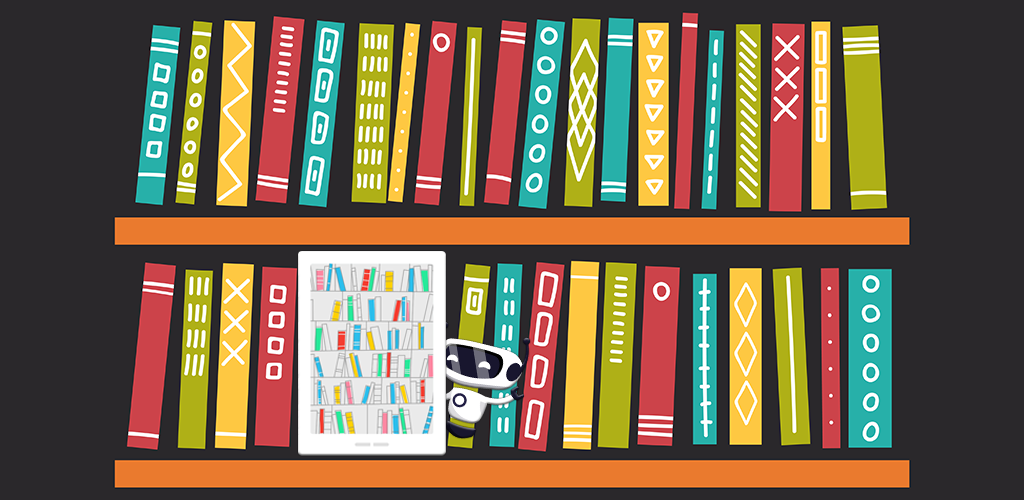December 15, 2020
Privacy Tip of the Week: Update Your eReader Privacy
Posted by Rhiannon

More than 90 million people in the US access content such as books, magazines, and newspapers on ereader devices. They’re conveniently portable and readily accessible, with some of the biggest brands in the world offering their own variation of the tech. Some of the most popular models include Amazon’s Kindle, Barnes and Noble’s Nook, and the Kobo variety. Despite their convenience and prevalence, ereaders threaten your privacy in a way that paper-and-ink publications cannot. Take a look at which data is at risk, and how to improve your ereader privacy:
- What data do ereaders collect?
- Turn off your wi-fi
- Download from non-proprietary sources
- Adjust your settings
- Read a physical book
What Data do eReaders Collect?
Most people don’t expect something as innocuous as an ereader to be a threat to their privacy. However, the companies that make them often benefit from gathering as much data about you and your reading habits as possible. Although you may not feel that this information matters much, data analysts excel at creating detailed profiles about customers from seemingly unimportant info.
The data that ereaders may collect about you includes what you read, when you read it, and for how long. It may also contain information about your purchase history and even geo-location (for some new models). Furthermore, some ereaders, like the Kindle, track all activity on your device, including page turns, searches for definitions, notes, highlights and bookmarks, and more. All of this data reduces your ereader privacy.
Turn Off Your Wi-Fi
Most modern ereaders come enabled with wi-fi connectivity, which makes searching for and downloading fresh content much easier. Unfortunately, this feature also creates the biggest threat to your privacy. All of your ereader activity is transmitted to the company behind your device over your wi-fi connection. By turning your wi-fi off, you prevent servers from collecting your data. Unfortunately, this solution is not a permanent one, because preventing access to the internet also takes away some of the best features of ereaders.
Download From Non-Proprietary Sources
Many ereaders allow you to download fresh content through old-fashioned cabled connections. However, if you get your content from the flagship websites of your ereader model, your data (like your purchase history) will simply be gathered through their sites and added to your existing profile. One way around this is by downloading ebooks from non-proprietary sources like the copyright-free Project Gutenberg. Unfortunately, this also isn’t a permanent solution for ereader privacy, because these sources are limited in the titles they offer.
Adjust Your Settings
Possibly the most efficient way of increasing your ereader privacy is by adjusting the settings on your device. Many of them allow for the tweaking of data usage. On the Kindle, for example, you can disable tracking either on your ereader (navigate to All Settings > Device Options > Advanced Options > Privacy) or through your Amazon account (go to the Manage Your Content and Devices page in your account).
Read a Physical Book
The only 100% guaranteed way of preventing ereaders from collecting your data is by forgoing ereaders altogether. Paper-and-ink books, magazines, and newspapers may be falling out of fashion in terms of convenience, but they’re far and above the best tool at your disposal when it comes to reading privacy. While you may be unwilling to relinquish your ereader altogether, reducing the amount of digital reading you do can have a positive impact on your overall data privacy.
If you’re looking for ways to protect your privacy online, consider using HotBot VPN. Now available for Windows, Android, and iOS devices, our services mask your IP address, encrypt your data, and more.
Posted by Rhiannon
More Blog Posts
February 14, 2023
How the Investigatory Powers Act Impacts Citizen Privacy
In 2016, the United Kingdom passed the Investigatory Powers Act or IP Act, into law. This act empowered the government and related agencies to access and collect citizen data, without consent. Critics immediately slammed the new law. The media dubbed it the “Snoopers’ Charter.” Meanwhile, Edward Snowden described the act as “the most extreme surveillance […] Read moreFebruary 14, 2023
How to Easily Unblock Wikipedia with HotBot VPN
Wikipedia puts a wealth of information at your fingertips. Everything from the biography of Alexander Graham Bell to the basics of quantum computing can be instantly opened by curious browsers. But what happens when you can’t access that information? Whether a business network blocks it or a particular country censors it, don’t let that slow […] Read moreFebruary 14, 2023

